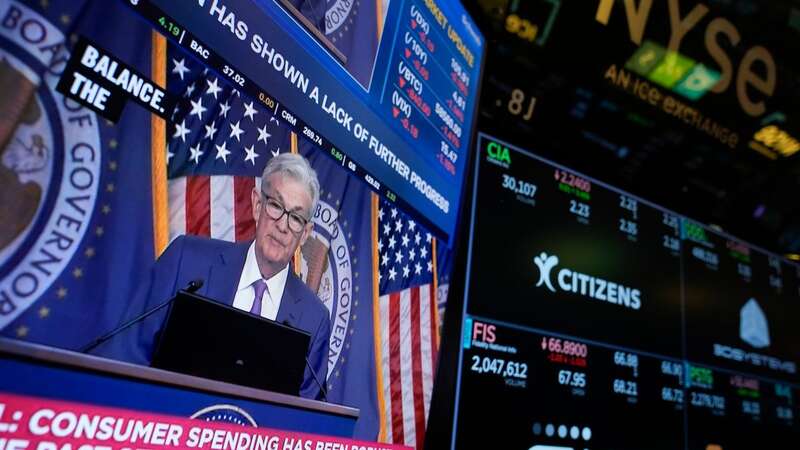

Federal Reserve officials are set to confirm what has been apparent for several weeks: with inflation persisting above their 2% target, they are revising their outlook for interest rate cuts.
After their latest meeting concludes, the policymakers will release quarterly economic forecasts. These are expected to indicate that they will reduce their benchmark rate only once or twice by the end of the year, rather than the three times they had anticipated in March.
The Fed's rate policies usually significantly influence the costs of mortgages, auto loans, credit card rates and other forms of consumer and business borrowing. The downgrade in their outlook for rate cuts implies that such borrowing costs would likely remain higher for longer, a letdown for potential homebuyers and others.
However, the Fed's quarterly projections of future interest rate cuts are not set in stone. The policymakers frequently adjust their plans for rate cuts - or increases - based on how economic growth and inflation measures change over time.
Borrowing costs staying high could spell trouble for the presidential race, with President Joe Biden's administration already facing a grim view from voters due to soaring prices since the pandemic. Despite a low unemployment rate of 4%, robust hiring, and steady consumer spending, the high cost of living continues to weigh heavily on public sentiment.
 Britain faces the worst recession among G7 partners, economists predict
Britain faces the worst recession among G7 partners, economists predict
The Fed's economic outlook, set to be updated on Wednesday, will take into account May's inflation data, which is anticipated to show a 0.3% rise in core inflation, mirroring the previous month and exceeding the Fed's comfort zone. While overall inflation may have seen only a slight 0.1% increase thanks to decreasing gas prices, year-on-year figures are expected to reveal a 3.4% jump in consumer prices for May, consistent with April's numbers.
After a period of declining inflation in the latter half of last year, there was optimism that the Fed might pull off a "soft landing," successfully reining in inflation without triggering a recessiona challenging and uncommon feat. However, higher-than-anticipated inflation in the first quarter has dashed hopes for early rate cuts and put the possibility of a soft landing at risk.
In early May, Jerome Powell, the Chair of the central bank, stated that more assurance was needed that inflation was returning to its target before the benchmark rate could be reduced. He noted that gaining this confidence would likely take longer than Fed officials had previously anticipated.
Christopher Waller, a key member of the Fed's Board of Governors, expressed last month that he required "several more months of good inflation data" before he would consider backing rate cuts. While Waller didn't specify what would constitute good data, economists believe it would need to be core inflation of 0.2% or less each month.
Powell and other Fed policymakers have also indicated that as long as the economy remains robust, they see no immediate need to reduce rates. Matthew Luzzetti, chief US economist at Deutsche Bank, said in a note to clients: "Fed officials have clearly signaled that they are in a wait-and-see mode with respect to the timing and magnitude of rate cuts,".
The Fed's approach to its rate policies is heavily dependent on the latest economic data. In the past, the central bank would have placed more emphasis on its projections for inflation and economic growth in the upcoming months.
However, Nathan Sheets, chief global economist at Citi and a former top economist at the Fed, said: "They don't have any confidence in their ability to forecast inflation." In his view, "No one has been successful at forecasting inflation" for the past three to four years.